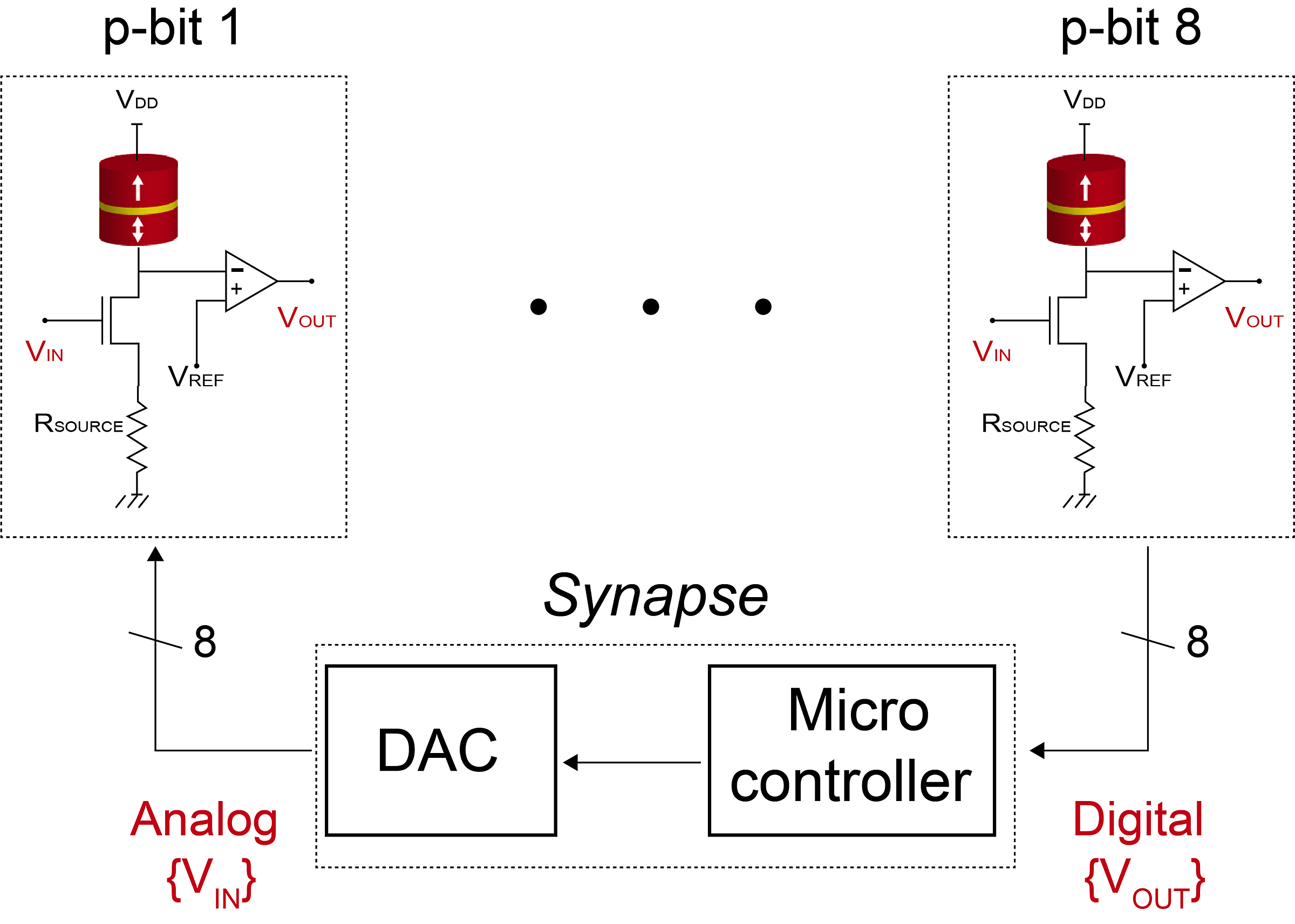
Scientists at the Purdue University built a device that is a modified version of magnetoresistive random-access memory, or MRAM, which some types of computers use today to store information. The technology uses the orientation of magnets to create states of resistance corresponding to zero or one. They proposed the idea of a probabilistic computer using p-bits that can be either zero or one at any given time and fluctuate rapidly between the two and that work at room temperature.
The circuit successfully solved what is often considered a “quantum” problem: Factoring integers such as 35,161 and 945 into smaller numbers. Currently they built a 8 p-bits system but hundreds of p-bits would be needed to solve bigger problems. Stay tuned. (Purdue University)
